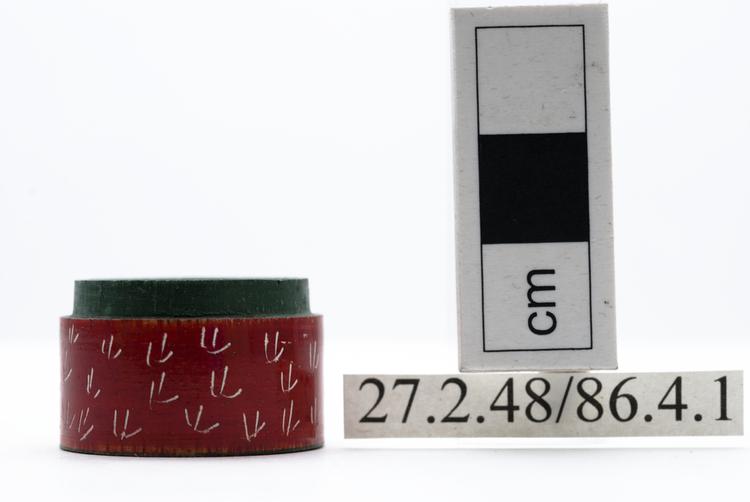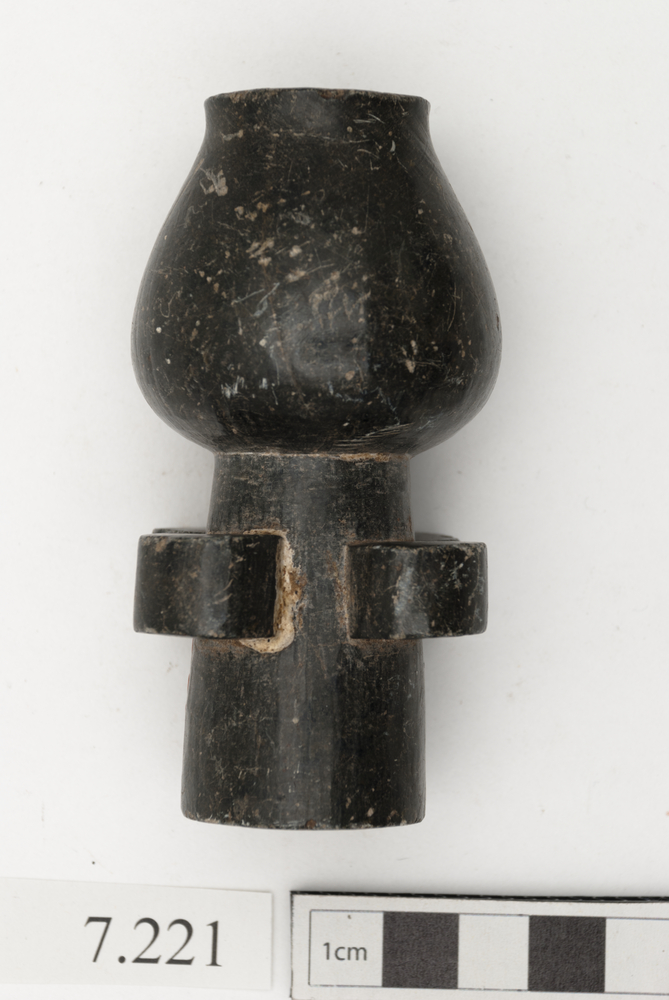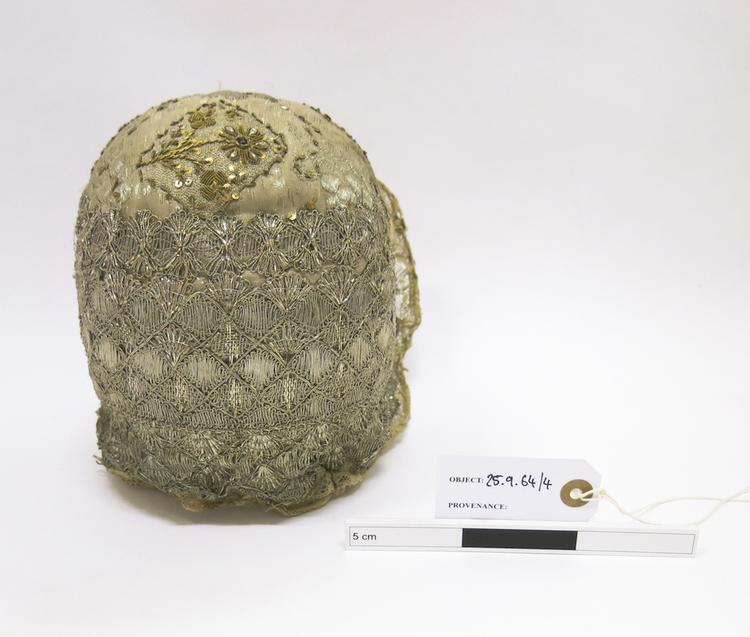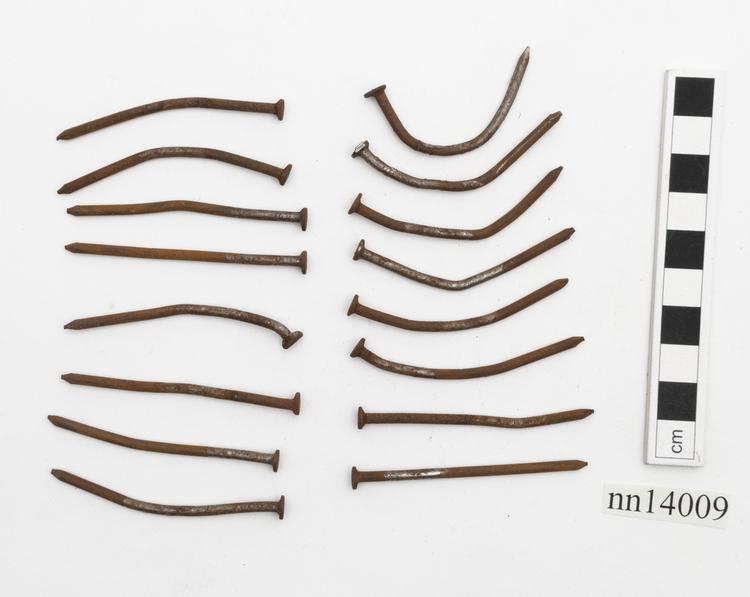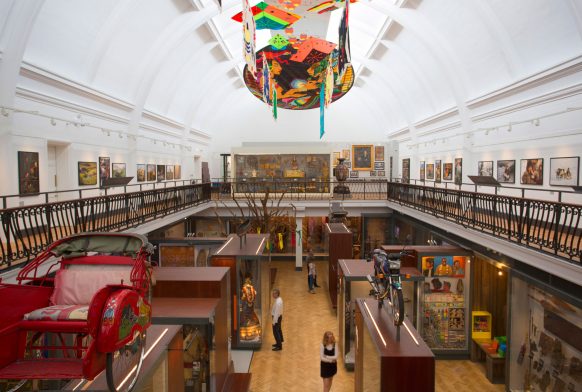Wooden headrest (ekicholong) with leather strap.
Rethinking Relationships Commentary by Antony Njoroge: This is a traditional stool used by old men from Turkana tribe of Northwestern Kenya, East Africa. It is always carried by these men and is used for sitting on as well as a headrest. It is carved from rare species of tree; with a wider round sitting base and a shorter base joined together by a rather short trunk. Some have a leather strap for handling when carrying it. Ekicholongs are used for a variety of purposes, from simple chairs to avoid sitting directly on the hot desert sand, to headrests that help keep their head off the ground and protect any ceremonial head decorations from being damaged. It is a daily companion and a symbol of authority. It is unheard of for a Turkana man not to have one. If you want to borrow one, one must spit on it once as a symbol of respect and honor bestowed to the owner. Women are prohibited strongly from touching or even sitting on it. Its believed that if they do so, it will bring bad omens, including death, to the owner. When this happens, the woman must slaughter a blemish free and fat goat or sheep to ward off the bad omen by appeasing the evil spirits. When an old man dies and buried, his stool is placed on top of his grave for nobody else can use it.



